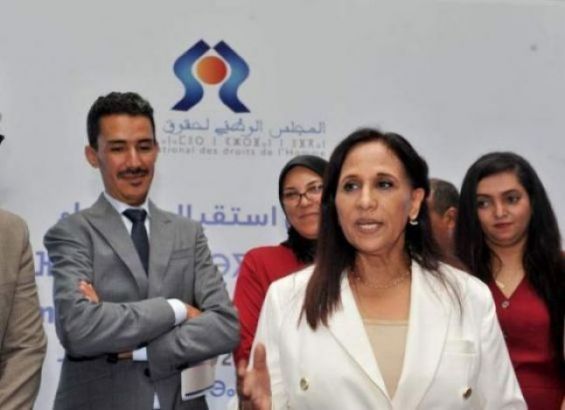Morocco’s National Committee for Human Rights (CNDH) has finally released its long-awaited report on Al Hoceima’s Hirak protests. Validated by its second general assembly, the document, which is part of the national institution’s 2019 human rights report, was based on thorough investigations, CNDH president Amina Bouayach explained.
According to the conclusions of the report, the period between October 2016 and March 2017 was marked by «peaceful protests that lasted for about six months», «one of the longest periods recorded in the history of peaceful protests in Morocco».
«Violence started when authorities tried to disperse the movement’s first sit-in at the Mohammed VI square», recalled the Committee. «Violent demonstrations (…) targeted security forces and resulted in deep trauma», CNDH says.
The latter recalled that among the «814 protests, including 340 ones that requested special supervision», only 60 were dispersed, which accounts for 10% of all Hirak protests. During the protests 788 security agents were injured, CNDH reported.
The report adds that 400 people have been arrested, including 129 minors, recalling that until March 2020, 49 individuals are still serving prison sentences. The document mainly focuses on the police, without mentioning the number of civilians injured during the protests.
To CNDH, solitary confinement is not a «form of torture»
The report recalls the incident that led to the arrest of Hirak figurehead Nasser Zefzafi, who interrupted a Friday sermon and called an imam a «charlatan» in May 2017. To CNDH, «places of worship, regardless of the religion, must be treated in a special way». It states that what happened before the arrest of Zefzafi «had prevented worshipers from their right to perform Friday prayers».
It added that by «storming the mosque, [Nasser Zefzafi] violated the rights of those who were in the place of worship to pray».
CNDH devotes a big part of its report to torture allegations. The report puts these allegations in four categories: those which show elements of torture (3 cases); others related to the excessive use of force (9 cases including the one of Nasser Zefzafi), allegations of cruel and inhuman treatment (3 cases), and cases where violence has not been proven (27 cases).
The document refers to the imprisonment of detainees during the trial, but notes, however, that putting them in solitary confinement «does not constitute a form of torture». It «can be seen as a cruel, inhuman and degrading treatment when it is long and when it is associated with absolute social isolation», which was not the case.
«The detainees were not denied family and lawyer visits» nor were they prevented from «calls and medical follow-ups (…) The doctors did not record any psychological impact on them after being put in solitary confinment», CNDH revealed.
The same source also points out that «the medical examinations carried out did not comply with the allegations» especially when it comes to Zefzafi and other detainees.
Torture allegations «have not been sufficiently investigated during trials»
CNDH’s conclusions indicate that «the delay in dialogue with members of the government and its virtual absence with elected officials in the region for a period of six months negatively affected the Hirak protests».
The report recalled that «the conclusions of the medical examinations were similar to those of the prison doctor and those of the doctors seperately appointed by the investigating judge and CNDH to investigate the allegations».
While noting that the investigating judge «subjected all the detainees to a medical examination by interviewing doctors and including medical reports in the file», the same source recalls that «the complaints of some of the accused regarding the violence they were subjected to when they were arrested by the Al Hoceima judicial police were investigated».
However, CNDH considers that «the defendants and their defense were not informed of the results of this investigation». «The Council notes that torture allegations have not been sufficiently discussed and debated during the trials», it reported.
Thus, CNDH urged «the competent authorities to further investigate cases where it has considered that there may be elements of torture and cruel and inhuman treatment». CNDH also requested the competent authorities to «publish the results of this investigation».





 chargement...
chargement...













